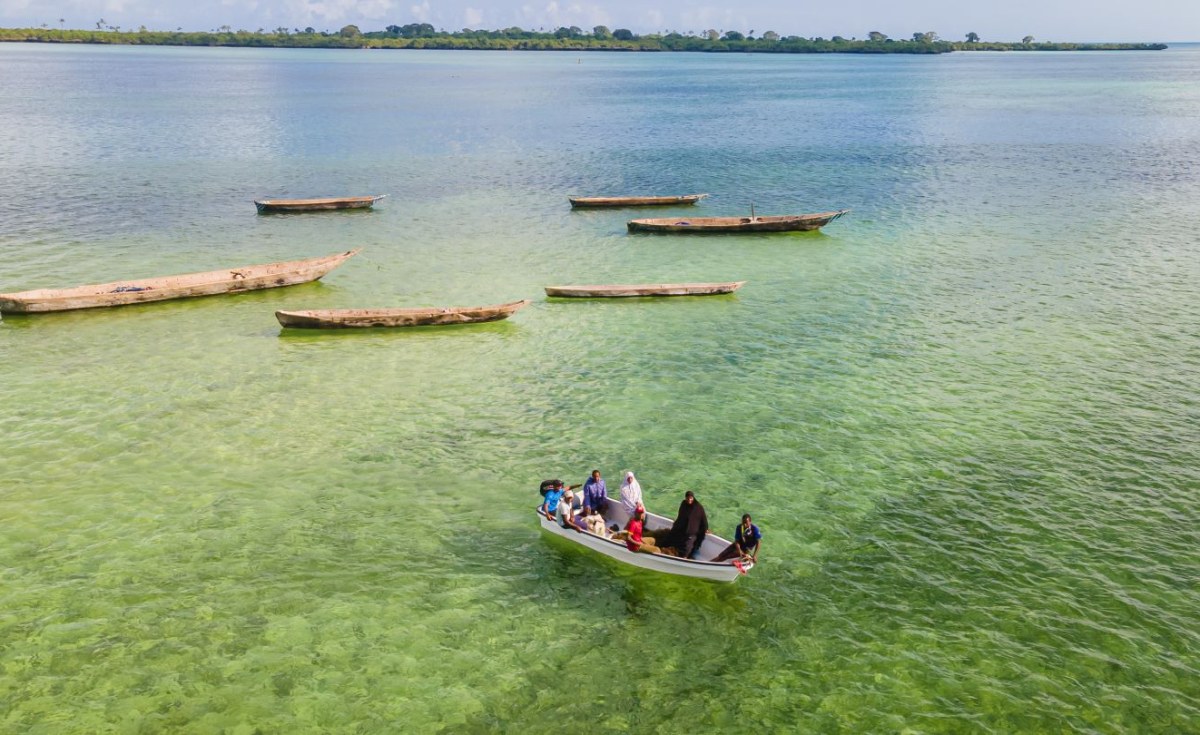As the sun rises over Pemba island in Tanzania, Shajia and other seaweed farmers head towards the water to harvest their seaweed at low tide.
When Shajia first started farming seaweed in 1995, she did it largely along the shore. In the decades since, conditions have changed.
“Due to the high temperatures caused by climate change, the seaweed was not doing well on the shores,” she explains. “We were forced to go deeper into the ocean.”
The IFAD-supported LDFS project is helping Shajia adapt to the new normal. As well as receiving equipment, she’s learned how to grow seaweed along ropes. This ensures a plentiful harvest that is easier to gather and is protected from the tides.
Processing the precious produce
At midday, the boats return to shore, laden with their glistening produce. The seaweed is then sorted and spread out on drying racks at the local collection centre.
The dried seaweed is then exported for use in medicines and processing into carrageenan, a gelling substance that is used in everything from shampoo to soy milk. With government plans to establish a processing plant on Pemba, farmers will soon be able to move up the value chain and get higher profits for their produce.
Beauty business
Twenty-six-year-old Saumu has been farming seaweed on her underwater plot for two years. After receiving training and equipment through LDFS, she increased her yield to 290 kilos. She uses her earnings to pay for her children’s education and to purchase iron sheeting to build a new home.
Saumu is also part of a collective of young women who produce a rich seaweed skincare oil. While they currently use imported powdered seaweed, they plan to purchase equipment to process Pemba-grown seaweed into powder themselves.
Saumu is a role model for other young women. “We need to take advantage of the opportunities in front of us, like the seaweed farming, which can benefit us and our families.”
*
For centuries, the islands off the east African coast have been part of a vast oceanic network spanning the Indian Ocean, with sailors following the trade winds all the way to southeast Asia. Today, rural people in the region are sustainably harvesting the ocean’s bounty before it sets out across the world.
Source: allafrica.com














